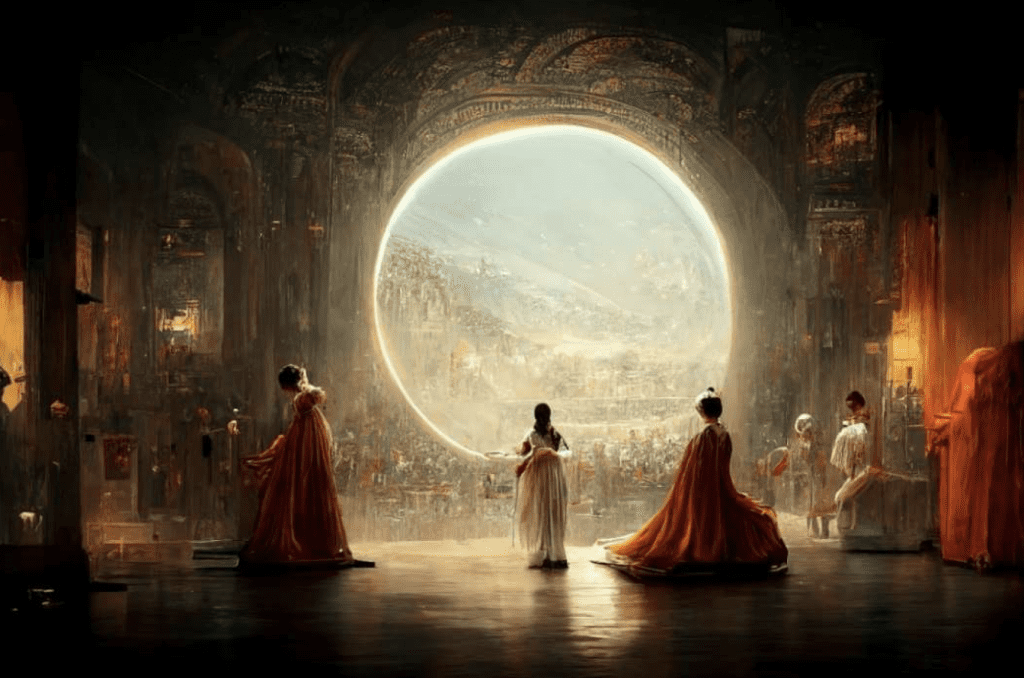This week saw the filing of a new AI-centric copyright case that will be worth keeping an eye on. Artist Jason M. Allen filed suit against the U.S. Copyright Office (“USCO”) on Thursday with the U.S. District Court for the District of Colorado. In the newly-filed suit, Allen urges the court to declare that his work, Théâtre D’opéra Spatial, is “capable of formal Copyright registration,” despite the USCO’s determination that it is not due to Allen’s use of AI, which causes the work to lack “the human authorship necessary to support a copyright claim.”
In his complaint, Allen says that he uses AI tools, such as Midjourney, to “assist in the creation of artistic works, which he displays and sells to the public.” To create Théâtre D’opéra Spatial, Allen says that he “selected the colors, the style, and the era of the artwork, and arranged the elements in the image,” and then used repeated text prompts to direct Midjourney to create an image with his exact specifications.

Emphasizing the time/effort that it takes to create an image on Midjourney, Allen (seemingly veering into “sweat of the brow” territory) says that creating an image using the Midjourney tool “requires more than the bare minimal mental effort” and in reality, required him to repeat the process of providing Midjourney with text prompts to perfect the image a total of 624 times. To put that figure “into perspective,” Allen states that “the world record for the most takes of a movie scene is 148 – nothing compared to 624.”
As for the total time he spent creating the work, Allen estimates that he spent 114.4 hours selecting, arranging, and instructing the AI on what he wanted it to generate.
TLDR: “It is clear that the work was not generated by Midjourney through the mere input of a few prompts. The creative selection and arrangement of elements in the image were entirely directed by [Allen], who meticulously crafted the instructions.” Midjourney, “lacking autonomous creativity, simply executed the detailed guidance provided by Allen, [whose] extensive effort and careful direction were crucial in creating the image, far surpassing the role of the AI tool.”
Arguing that a registration is warranted here, Allen maintains that the work is sufficiently original and contains human authorship as a result of his “selection, coordination, and arrangement of elements [that] resulted in the creation of the work.”
In particular, Allen takes issue with how the USCO misapplied the human authorship requirement and argues that the mechanical processes of Midjourney were “guided by creative and artistic input sufficient to permit copyright protection.” And in refusing to register his work, Allen maintains that the USCO has “failed to remain technologically neutral.”
The case is the latest in a string of matters that argue over whether copyright protections should extend to works that involve the use of AI. You can find out running timeline of those cases right here.
The case is Allen v. Perlmutter, et al., 1:24-cv-2665 (D. Col.)